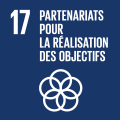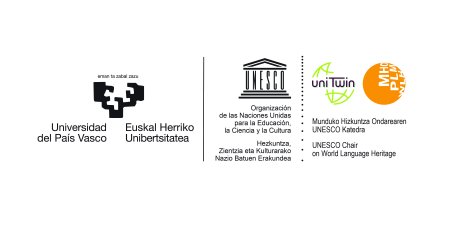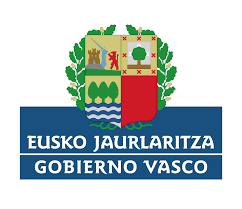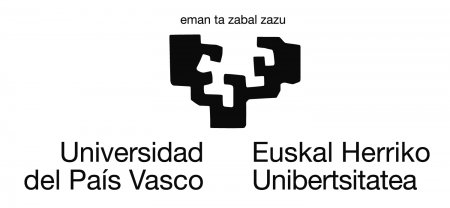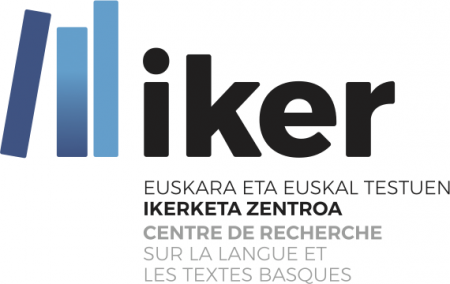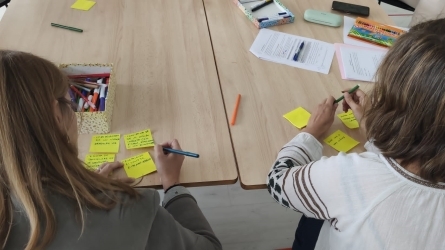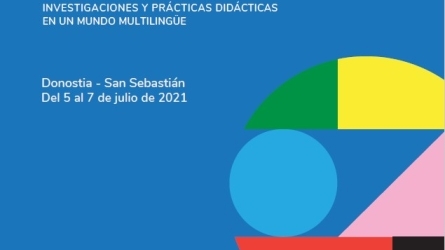
ISD 2021 - VII Congreso Internacional del Interaccionismo Socio-discursivo
Description
The Congress will be held face-to-face and there will also be the possibility of participating live online through ZOOM. In the registration process, please select the participation of your choice: face-to-face or live online.
In this Congress, research related to the study of socio-discursive interactionism of language will be exchanged and updated. In this seventh meeting, special emphasis will be placed on multilingual education and the effective integration of minority languages into it.
It is the first SDI International Meeting to be held in the Basque Country (and in the Spanish and French States), but the influence of the SDI, thanks to the contributions of our collaborators from the University of Geneva, has greatly contributed to the treatment and study of the languages in the Basque Country and, particularly, to their didactics. Various institutions and documents reflect this influence both with regard to the teaching of languages (Basque and other languages), to children or adults, and with regard to the training of language teachers.
We are convinced that the presence of international researchers will provide the scientific community in general and the Basque community in particular, the opportunity to broaden our interactionist and socio-discursive vision. It will also develop our knowledge and understanding of linguistic diversity, the functioning of languages and their didactics, so that the study of language and the teaching of languages is approached in an increasingly scientific and efficient way.
Our interest in the study of language activity in multilingual and minority language situations also leads us to open the field of SDI to other approaches, some traditionally related to sociolinguistics, such as the study of new speakers of minority languages, or broadly speaking, the study of revitalization processes of minority languages.
UNESCO's recommendations for linguistic diversity and multilingual education (2014), its initiatives in favour of indigenous languages (IYIL 2019), as well as the proposals of the Council of Europe (2019) insist on the need for multilingual training of all citizens.
We believe that we can only effectively contribute to the defence of such diversity, as well as to a global sustainable development, through a multilingual education which actively integrates minority languages.
Objectives
To make known to the Basque and international community the studies related to multilingual education, which have a great impact on Basque society.
To promote and disseminate theoretical and methodological reflection based on socio-discursive interactionism in order to approach the study and innovation of multilingual education focused on a minority language such as Basque.
To exchange and learn about studies related to language teaching from different European and American contexts.
To promote research and attract young researchers to specialize in the study of multilingual education with minority languages.
To offer the possibility of complementary training for practicing teachers interested in the subject matter of the Workshop.
ORGANIZING COMMITTEE
- Inés Mª García Azkoaga, University of the Basque Country (UPV/EHU)
- Leire Díaz de Gereñu, University of the Basque Country (UPV/EHU)
- Ibon Manterola, University of the Basque Country (UPV/EHU)
- Itziar Idiazabal, University of the Basque Country (UPV/EHU)
- Jean-Paul Bronckart, University of Geneva
- Eulália Vera Lúcia Fraga Leurquin, GELA/CNPq, Universidade Federal do Ceará (UFC), Brasil
ANNOUNCEMENTS
Activity directed to
- University students
- Teachers
- Professionals
Directors

Ines M. Garcia Azkoaga
Euskal Herriko Unibertsitatea
Ph.D. in Basque Philology. I am Associate Professor at the University of the Basque Country (UPV/EHU) and a member of the UNESCO Chair on World Language Heritage (UPV/EHU). I work in the Department of Basque Language and Communication and I have also worked in the Language and Literature Teaching Department. I am currently teaching Basque as a specialty language in the Degree of Physical Activity and Sports Sciences, in addition to several Master courses. My research field is multilingual education with minorized languages and language learning, with a focus on exploring text and discourse productions. Those are the main topics of my publications. I have been president of the Education Section of the Basque studies Society (Euskko Ikaskuntza). Since 2018 I am responsble for the UNESCO Chair on World Language Heritages of the University of The Basque Country (UPV/EHU).
Speakers

Ermelinda Barricelli
Coordenadora do Curso de Pedagogia – Universidade São Francisco (USF)
Coordinator and professor of the Postgraduate Course in Pedagogy at the Universidade São Francisco. She is the institutional coordinator of the Education Initiation Program (PIBID), which is funded by CAPES, in the same institution. She has a degree in Literature and Pedagogy and a Master's and a Doctorate in Applied Linguistics and Language Studies in the line of Language and Education from PUC-SP, under the direction of Anna Rachel Machado. In addition, she did a doctoral internship at the National Conservatory of Arts and Crafts in Paris (CNAM) under the direction of Anna Rachel Machado and the supervision of Yves Clot. She did a post-doctorate at the Faculty of Education at UNICAMP and is a member of the ALTER-AGE-USP research group. Her research focuses, in particular, on teaching work in early childhood education.

Jean Paul Bronckart
Universidad de Ginebra
Honorary professor at the University of Geneva. Collaborator of Jean Piaget from 1969 to 1975, he was, from 1976 to 2012, full professor in Language didactics at the Faculty of Psychology and Educational Sciences. His research and teaching focus on language theories, text/discourse analysis, language didactics and the role of language in psychological development. Founder of the Socio-Discursive Interactionism Network, he is the author of more than 500 publications, including Théories du langage (1977/ new version, 2019), Le fonctionnement des discours (in collaboration, 1985), Activité langagière, textes et discours (1997), Desarollo del lenguaje y didactica de las lenguas (2007), Le projet de Ferdinand de Saussure (with E. Bulea Bronckart & C. Bota, 2010), Pourquoi et comment devenir didacticien? (2016), As unidades semióticas em ação (with E. Bulea Bronckart, 2017) and Unmasking Bakhtin (with C. Bota, 2019).
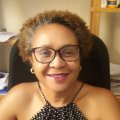
Luzia Bueno
Universidade São Francisco (USF)
Professor of the Stricto Sensu Postgraduate Program in Education at the São Francisco University. She works in the field of education, languages and interactive processes, developing and directing research on literacy, teaching of textual genres and teacher training. She has a degree in Arts and Social Sciences, with a master's degree in Applied Linguistics from Unicamp (under the direction of Angela Kleiman), a doctorate in Applied Linguistics from PUC-SP (under the direction of Anna Rachel Machado), with a doctoral internship at the University of Geneva, supervised by Jean-Paul Bronckart. She is a CNPq-2 fellow, leader of the ALTER-LEGE-CNPq research group, and deputy director of the ALTER-AGE-CNPq group.
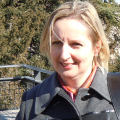
Ecaterina Bulea-Bronckart
Universidad de Ginebra
Ecaterina Bulea Bronckart is professor of French Didactics at the Faculty of Psychology and Educational Sciences of the University of Geneva, where she co-directs the research team in Language teaching and coordinates doctoral studies in Sciences of education. His work mainly covers three areas: the didactics of the first language, with an emphasis on the teaching of grammar and on the links between grammar and texts; general theories of language, particularly the work of Saussure and dynamic approaches to language; the role of language in the psychological development process. Several of her researches are developed within the framework of close collaborations with French-speaking universities, but also in Spain, Portugal, Brazil and Argentina, within international networks, in particular the network of socio-discursive interactionism (SDI) and the Association for Research in French Teaching (AIRDF).

Joaquim Dolz Mestre
FPSE Université de Genèves
Professor of language didactics and teacher training at the University of Geneva. Since 1980, he has been researching language development and language teaching and learning from the perspective of socio-discursive interactionism. Among these investigations, the best known are the works on the teaching of oral and written production, textual genres, didactic sequences, learning difficulties and the analysis of teaching activity. A member of the GRAFE and FORENDIF research groups, he is currently directing his new research on the training of French teaching teachers.
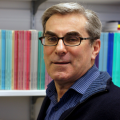
Fred Genesee
McGill University
Professor Emeritus in the Psychology Department at McGill University, Montreal. He is interested in basic issues related to language learning, representation, and use in bilinguals and in applied issues related to second language teaching, learning, and assessment. He has conducted extensive research on alternative forms of bilingual/ immersion education for language minority and language majority students, the academic development of at-risk students in bilingual programs. language acquisition in typically-developing and at-risk pre-school bilingual children, and internationally-adopted children. He has published numerous articles in scientific journals, professional books and magazines and is the author of 16 books on bilingualism. He is the recipient of the Canadian Psychology Association Gold Medal Award, Paul Pimsler Award for Research in Foreign Language Education, Canadian Psychological Association Award for Distinguished Contributions to Community or Public Service.
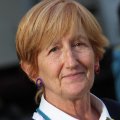
Itziar Idiazabal Gorrotxategi
UPV/EHU
Professor of Basque Philology (1992) and Honorary Collaborator of the Department of Linguistics and Basque Studies at the University of the Basque Country (UPV / EHU). Doctor from the University of Geneva (1983) in the area of Psycholinguistics. He is part of the ELEBILAB research group (https://www.ehu.eus/eu/web/elebilab) where he has directed numerous research projects on language acquisition in bilingual children, on discursive analysis of Basque and on language teaching in bi-multilingual programs (Garcia-Azkoaga & Idiazabal (Eds.) 2015). He has supervised 15 doctoral theses. She is the founder and member of the UNESCO Chair of World Linguistic Heritage of the UPV / EHU https://www.ehu.eus/eu/web/mho-unesco-katedra, where she has recently published a volume on linguistic diversity and sustainable development www .labur.eus / IdiazabalPerezCaurel He is a corresponding member of Euskaltzaindia (Academy of the Basque language).

Eliane Lousada
Faculdade de Filosofia, Letras e Ciências Humanas – Universidade de São Paulo (USP)
Eliane Lousada has a master's and a doctorate in Applied Linguistics and Language Studies from PUC-SP. She is a professor in the Department of Modern Languages of the Faculty of Letters and in the postgraduate program in Foreign Languages and Translation of the University of São Paulo (USP). She has been a professor and director of research at the University of Guelph, Canada, in the field of teaching French as a second / foreign language. She is the leader of the ALTER-CNPq and ALTER-AGE-CNPq research groups and coordinator of the Academic Literacy Laboratory of the Faculty of Philosophy, Letters and Humanities of USP de Francés. She is a researcher in the fields of teaching and learning textual genres, the preparation and analysis of didactic materials for language teaching, academic literacy, and teacher training and improvement, based on socio-discursive interactionism and some of the occupational sciences.
Summary
Conclusions sent by the direction of the Summer Course
Sustainable development goals
Agenda 2030 is the new international development agenda approved in September 2015 by the United Nations. This agenda aims to be an instrument to favour sustainable human development all over the planet, and its main pillars are the eradication of poverty, a reduction in equality and vulnerability and fostering sustainability. It is a unique opportunity to transform the world up to 2030 and guarantee human rights for all.

4 - Quality education
Guarantee quality education that is inclusive and equitable and foster opportunities for lifelong learning for everyone. Key issues: free-of-charge, equitable and quality education, access to higher education and training on an equal basis, education for sustainable development, suitable education centres for persons with disabilities, and safe, non-violent and efficient learning environments.
More information
17 - Partnerships for the goals
Strengthen the means of implementation and revitalise the World Alliance for Sustainable Development. Key issues: mobilisation of resources, 0.7% of GDP for official overseas development aid, finances, cooperation in technology and innovation, ecologically rational technologies, skills building, universal and multilateral trade system, coherence on the legislative and institutional levels, availability of data, supervision, indicators and accountability.
More information